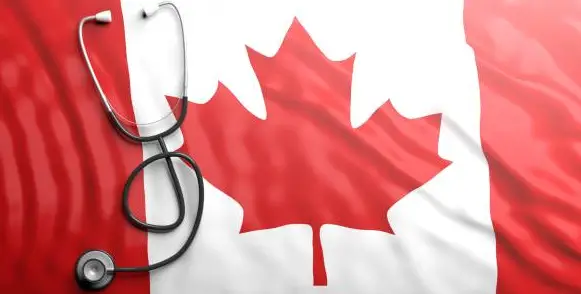Embarking on a medical trip to Canada involves careful planning, and one vital aspect that requires consideration is health insurance. Canada boasts a publicly funded healthcare system catering to its residents, but this coverage doesn't extend to visitors. Consequently, it becomes imperative for individuals traveling to Canada for medical reasons to secure suitable health insurance. This comprehensive guide explores the necessity of health insurance, the types available, and the critical factors to consider when safeguarding your well-being during your medical journey to Canada.

Public Healthcare System in Canada:
Canada has a publicly funded healthcare system that provides medical services to its residents. However, this system does not extend its coverage to visitors, including tourists and individuals traveling to Canada for medical treatment. As a result, without proper health insurance, you may be personally responsible for covering any medical expenses incurred during your stay.
Coverage for Medical Expenses:
Health insurance for your medical trip to Canada is essential because medical care in the country can be expensive. Having the right insurance coverage can help offset the costs associated with doctor visits, hospital stays, diagnostic tests, and prescription medications. It ensures that you receive necessary medical attention without the burden of exorbitant out-of-pocket expenses.
Read more: Where Can I Go For Birdwatching In Canada?
Types of Health Insurance:
When considering health insurance for your medical trip to Canada, there are different types of policies to explore. Travel health insurance is specifically designed for individuals traveling internationally and can provide coverage for medical emergencies and unexpected health issues. It's important to carefully review the terms and conditions of the policy to ensure that it meets your specific needs.

Public Health Insurance (Medicare):
Canada has a publicly funded healthcare system, often referred to as Medicare. This system provides basic medical services to Canadian citizens and permanent residents. Coverage varies by province or territory, and it typically includes doctor visits, hospital stays, and essential medical services. However, coverage may not extend to prescription medications, dental care, and other non-essential services.
Private Health Insurance:
Private health insurance in Canada is designed to fill the gaps left by public health coverage. It covers additional services not included in the public system, such as prescription drugs, dental care, vision care, and paramedical services (e.g., physiotherapy, chiropractic care). Many Canadians, especially those without employer-sponsored benefits, opt for private health insurance to enhance their overall healthcare coverage.
Travel Health Insurance:
Travel health insurance is crucial for visitors to Canada, including tourists and individuals coming for medical treatment. This type of insurance covers emergency medical expenses, hospitalization, and other unforeseen health issues that may arise during the trip. It provides financial protection for non-residents who may not be eligible for the public healthcare system.
Employee Benefits and Group Insurance:
Many Canadians receive health insurance coverage through their employers as part of their employee benefits package. Group insurance plans often include extended health benefits, such as prescription drug coverage, dental care, and vision care. The specifics of coverage can vary between employers and plans.
Supplemental Health Insurance:
Supplemental health insurance policies are designed to complement existing public health coverage. These plans may cover additional expenses, such as ambulance services, medical equipment, and other healthcare-related costs that may not be fully covered by the public system.
Government Assistance Programs:
Some provinces and territories in Canada offer government assistance programs to help individuals who face financial challenges in accessing necessary healthcare services. These programs may cover certain health-related costs for eligible residents.
Visitor-to-Canada Insurance:
Specifically tailored for tourists and short-term visitors, Visitor-to-Canada insurance provides coverage for emergency medical expenses, hospitalization, and other unforeseen health issues during their stay in Canada.
Read more: Can I get emergency medical treatment in Canada without insurance?
Consult with Your Current Health Insurance Provider:
Before purchasing travel health insurance, it's advisable to consult with your existing health insurance provider. Some health insurance plans may offer limited coverage for international travel, and understanding the extent of this coverage is crucial. If your current plan does not provide adequate coverage for your trip to Canada, you may need to purchase a separate travel insurance policy.
Financial Protection and Peace of Mind:
The primary purpose of health insurance for your medical trip to Canada is to provide financial protection and peace of mind. Accidents and unexpected health issues can happen, and having insurance ensures that you can access necessary medical care without worrying about the financial implications.
Research and Comparison:
Before choosing a health insurance policy, conduct thorough research and compare different options. Look for policies that offer comprehensive coverage, including emergency medical services, hospitalization, and evacuation if necessary. Pay attention to policy limits, exclusions, and any pre-existing condition clauses.

Read more: What documents do I need to carry for my medical trip?
Final words:
Having a health insurance policy is a critical component of planning a medical trip to Canada. It protects you from potential financial burdens associated with medical expenses and ensures that you can focus on your health and recovery without unnecessary stress. Always read the policy details carefully, and choose a plan that aligns with your specific healthcare needs during your stay in Canada.
